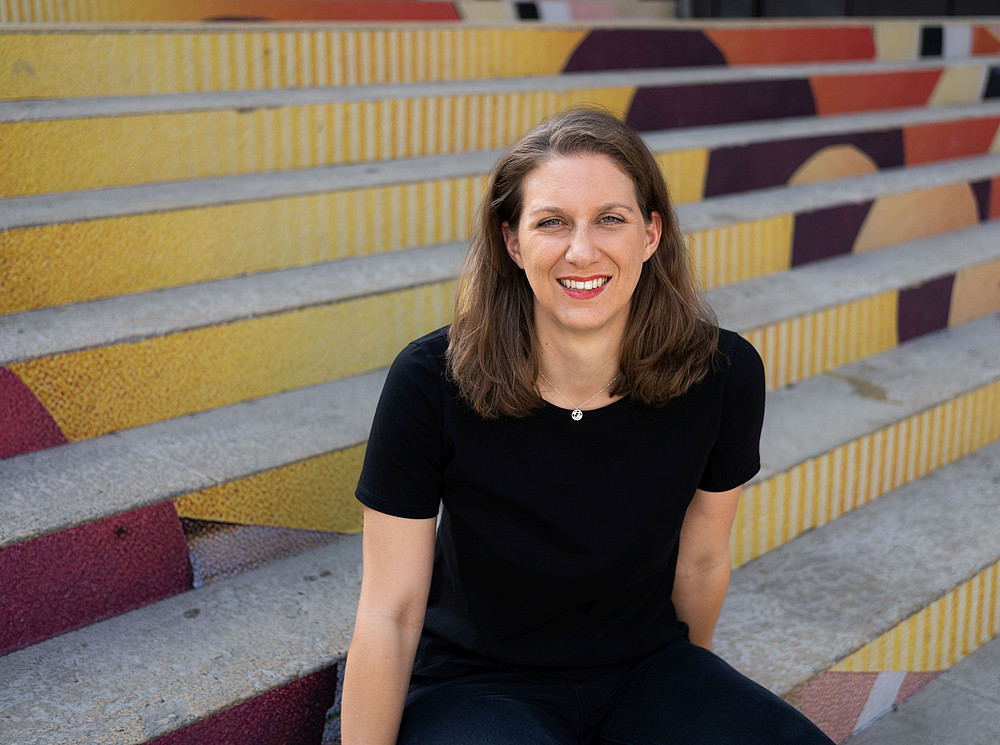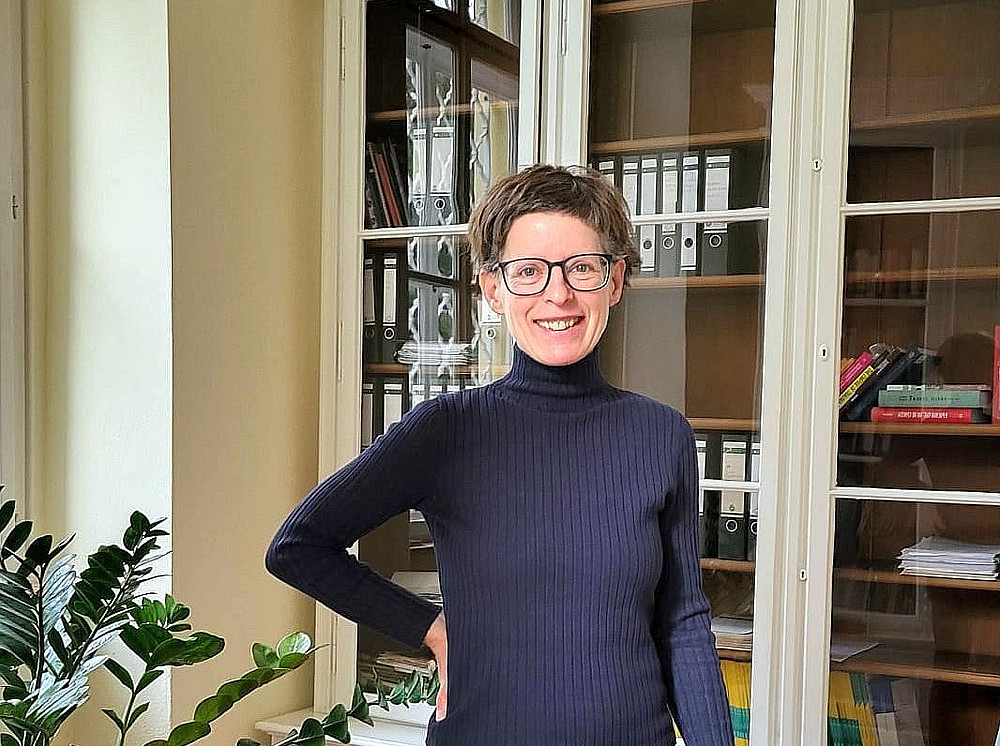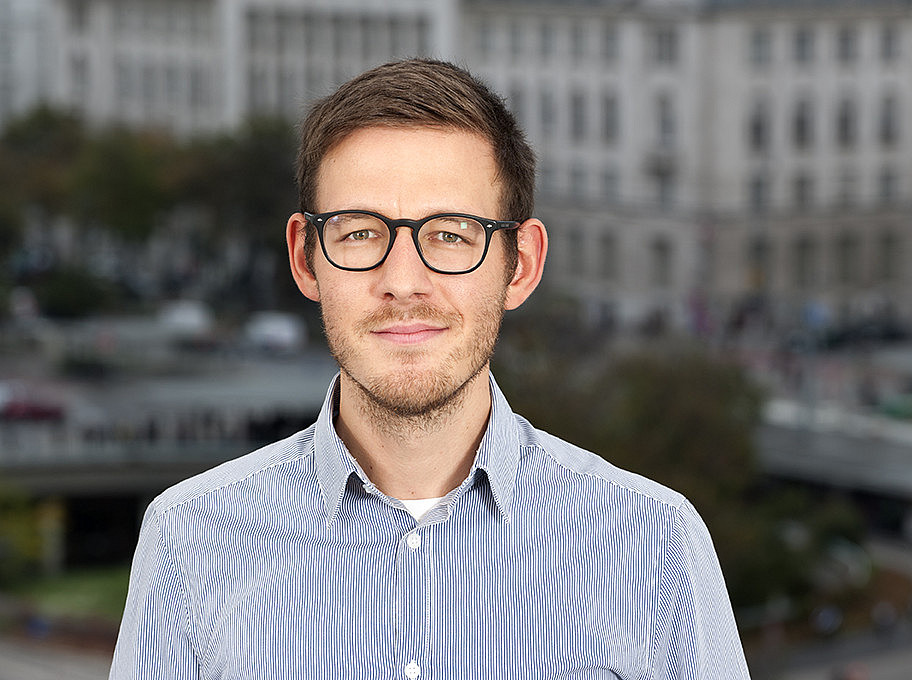Three questions for...
What interests you about contemporary history?
It may sound a bit trite, but for me contemporary history is the prehistory of the present. Current geopolitical conflicts, discussions about technical changes or questions about political and social constellations cannot be understood without critically contextualizing and questioning current conditions with the help of contemporary history. It was this blatant reference to the present that drew me to contemporary history. As a person with an interest in politics, I was fascinated early on by the background and foundations of global processes and constellations, as well as the lessons and conclusions that can be drawn from past events. This also gives me a work assignment. It is important to me to provide students and an interested public with tools for critically questioning the present and to emphasize the value of democracy and pluralistic models of society. Contemporary history in particular is a subject that is always on the move and is constantly changing due to new technical possibilities, such as advancing digitalization, and current discussions. Or to say it with the German band Fehlfarben: History is being made! It is moving forward! This is especially true for contemporary history and that's what makes it so exciting for me!

In your research, you deal with migration, the history of the Cold War and international organizations. What experiences have you gained from your archive research in different countries?
Archive research is one of the most exciting parts of my work as a historian! There's always something new to discover in archives that helps you to better understand the past and to question common caesuras. It's also always interesting to get to know different archive cultures. The approaches that different countries or organizations take to preserving and making sources available can sometimes be quite different. Personal experiences range from the motto "The files belong to the people", as practiced in the US National Archives, to restrictive limitations regarding personal data and time availability. In these cases, it is often important to be persistent in order to obtain material after all. Sometimes, however, such an archive trip can also lead to very amusing experiences. I've also found myself in the cellars and warehouses of various aid organizations looking for documents for my research projects alongside bicycles, protective equipment and emergency vehicles. And there are many wonderful treasures to be found in these places!
You are currently the Erasmus officer at the Institute of History and advise our students. What can you tell us about this area?
My duties as Erasmus officer essentially include advising students coming to the Institute of History on the courses on offer and advising students from our institute on questions about credit transfer for their study visit to a partner university. I formally approve all learning agreements, i.e. the learning agreements that determine which courses students attend during their stay abroad. I really enjoy my work as an Erasmus+ officer! On the one hand, it's nice to get in touch with students from our department as well as those from our international partner universities. On the other hand, the Erasmus+ program is a wonderful European integration project that promotes the exchange of knowledge and living together in a common Europe. And on top of that, when is it not fun to meet new people and exchange ideas in Paris, Dublin or Bologna! That's why I can only motivate our students to take a look at the Erasmus+ program!

How did your enthusiasm for medieval economic history come about?
It was at the end of my studies. My master's thesis was about the household accounts of English bishops in the 13th century. These were difficult and at the same time totally exciting sources about everyday life in the Middle Ages. Where did people shop, what goods were consumed in households, how high were wages and how did people actually make ends meet? After my doctoral thesis, I founded a working group in 2013 with two colleagues who are also interested in economics, which still organizes annual conferences on topics such as work, agriculture, crises and information flows. And these are topics that are just as relevant in today's political discourse. I then followed this up clearly in my second book on microcredit. For me, the economy is the topic with the most potential for connection to current socio-political issues. We historians certainly don't live in an ivory tower.
One of your main areas of research is the study of material culture. Can you tell us about an object that has particularly fascinated you?
I'm a big fan of notched wood. Yes, that sounds quite nerdy and is also a fairly unknown topic. "To have something on the notchwood" is a well-known saying. Notched sticks are wooden sticks that were used in the Middle Ages as receipts, promissory bills or simply as a reminder of services rendered. Quantities were notched on wood to store various numerical information. Very simple. So people kept records without or alongside writing. This was practical as only a few people could read and paper and parchment were very expensive.
These practices existed long before the Middle Ages and were used in the manor, in the inn, in trade or even in royal financial administration well into the modern era throughout Europe. Although people used more and more writing and more complex forms of recording during the Middle Ages, notched sticks remained in use in many places until the 20th century. These simple objects were even used as a substitute for money and as evidence in court. I am currently writing a book on this subject.
You have been working at the University of Graz since September 2023. What ideas for new projects and courses have you brought with you?
Research-based teaching is very important to me. I try to incorporate this into my lectures and seminars, for example by regularly visiting the archives and the university library or inviting experts from these fields to my courses. I want students to lose their fear of medieval sources and become curious about the material. And the connection to the local tradition is important here; after all, archives and museums in the region are important potential employers for historians.
In addition to material culture, over the next few years I would like to conduct research here in Graz on moral economy, care of the poor and rituals and economy in the Middle Ages. The Mediterranean region will continue to be a geographical focus. However, I would also like to get to know the regional traditions of Styria better and develop projects from them.
Prof. Dr. Heike Karge
Historian and Head of the Department of Southeast European History and Anthropology
How did you become interested in Southeast European history?
With the wars in the former Yugoslavia. I had just started studying at the University of Leipzig in the early 1990s, then decided to learn the language, then still called Serbo-Croatian, and got involved in the peace movement. Studying Southeast European Studies to learn more about the region was only logical for me.

What experience in south-eastern Europe has remained particularly vivid in your memory?
That the people I met, whether in Belgrade or Sarajevo, so often affirmed that they had lived well together before the wars. That their imagination did not allow them to even think of war as a possibility. Then it happened, with fatal consequences. We have to take care of peace, because it cannot be taken for granted.
You have been working at the University of Graz since September 2023. What was your first experience like and what plans do you have for the future?
Graz is a wonderful, inspiring starting point for the study of south-eastern Europe, both because of its geographical proximity to the region and because of the academic diversity that characterizes the study of this region at the university. In the future, I will be particularly concerned with keeping students' curiosity about Southeast Europe alive - a worthwhile task, in my opinion!

Mr. Wurzer, what are you currently working on in your research?
As part of my habilitation project, I am looking at Habsburg imperialism in Austria's historical culture from 1918 to the present day. Although Austria's (or from 1867 Austria-Hungary's) imperialist involvement is now beyond question for the scientific community, this interpretation in historical culture still seems to compete with a persistent myth that claims that the Habsburg Monarchy was by no means a colonial power. The fact that Austria(-Hungary) had no colonies and therefore - according to the supposedly obvious conclusion - could not have been a colonial power is always brought into the debate, ignoring the fact that imperial action was by no means limited to the seizure and exploitation of colonies.
The aim of my habilitation project is therefore to deconstruct the myth of Austria's (Hungary's) colonial "immaculacy" on the basis of different historical-cultural sites, forms and practices. I am investigating how this powerful idea emerged and by which actors it was condensed into a hegemonic narrative in the course of the 20th century, while competing interpretations of the Danube Monarchy as a global player were marginalized and pushed out of the collective memory.
You have already worked as a researcher in various countries, including the USA, Italy and Germany. What particularly impressed you during your academic stays abroad?
The times I was able to spend abroad were incredibly enriching for me, both personally and in terms of content. It is admittedly difficult to pick out individual highlights from these intensive stays, but I will try: Being able to spend four months as an ÖAW scholarship holder researching at the ÖHI in Rome, in the middle of the "eternal" city, breathing in the air shimmering with historicity, not just being there as a tourist for a few days, but living there for some time, i.e. not just working there, but finding a "favorite trattoria", jogging along the Tiber and engaging in a brief chat about Italian domestic politics with the waiter in the café-bar every day - that was a special privilege! Mobility doesn't just mean working in different places, getting to know different academic cultures, but also getting involved with the cities, their inhabitants and the stories they can tell!
During my semester at the European University Institute in Florence, I not only got to know the excellent espresso in the cafeteria at the magnificent Villa Salviati, where the Institute of History is housed, but also this incredibly stimulating research community made up of renowned professors and brilliant doctoral students from all over Europe and beyond. I learned an incredible amount here for my dissertation project, was able to sharpen my questions in countless conversations and check my methodological considerations for blind spots!
Finally, at Harvard University, I was overwhelmed by the range of resources: the Widener Library, the university's main library so to speak, offers around 100 kilometers (!) of books on 10 floors. As a researcher, you also get access to the stacks yourself and can stroll along the countless shelves, rummage for books and hope for chance finds! In order not to get lost here, there are countless librarians who I got to know as the secret stars of this elite university: they know their collections like the back of their hand and spare no effort to follow up the smallest clues.
One of your main areas of research is the study of visual sources. Can you tell us about an image source that particularly fascinated you?
As part of my dissertation project, I collected around 5000 historical photographs from the Italian-Ethiopian War (1935-41), which are still kept in around 30 families in the Italian province of Bolzano/Bozen to this day. Of course, there were motifs among them that moved me. But I found the visual practices surrounding each individual picture much more fascinating. Photographs are neither for the soldiers nor for their families simply "ricordi", memorabilia, as the research literature has argued so far; instead, as I was able to work out in my dissertation, they are and were embedded in various everyday communication contexts, which can of course change over the decades. Pictures have complex "social lives", they are not simply looked at; they are copied, given away, exchanged, disposed of, forgotten or pasted into elaborately designed albums and possibly removed from them again by the "children's generation" in order to be digitized and loaded into a cloud as bytes and bits.